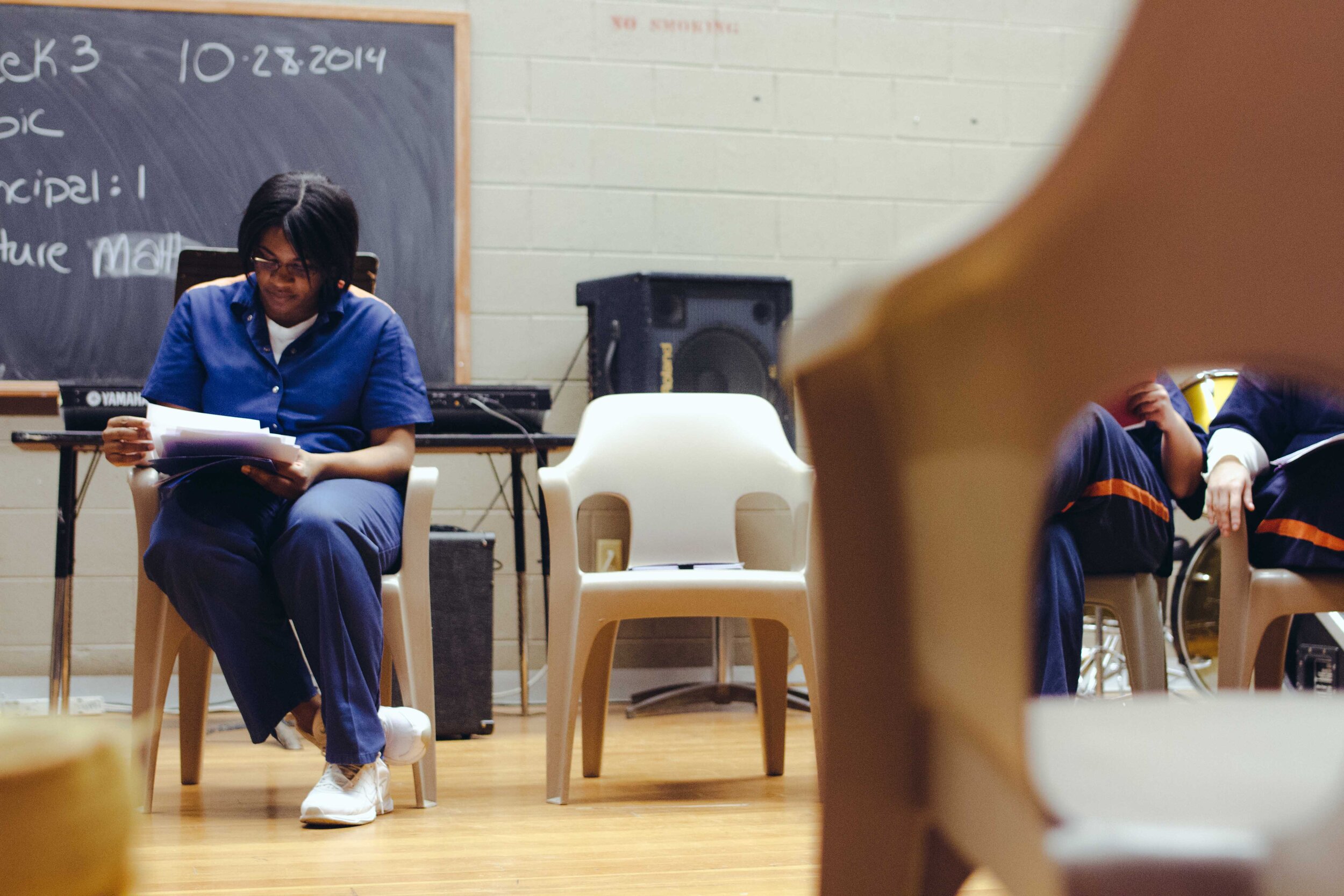Shakespeare in Prison│Outcomes
Ensemble members have always told us that their work in Shakespeare in Prison has effected enormous changes in themselves. But how does SIP “empower” people to use Shakespeare as a catalyst to radically alter their lives—and their very identities? How can we define that process?
Without the ability to do that, measuring success meant relying on anecdotal evidence and “downstream effects” like recidivism. Many prison arts programs face this same challenge, and we simply couldn’t find a method of defining outcomes that gelled with what we thought was happening in SIP.
2016-17 Case Study
In 2016, SIP’s team of facilitators set out to explore and document measurable outcomes, focusing on accurately describing the actual work that goes on in the ensemble. We asked the question:
How does one season of Shakespeare in Prison impact the ensemble member’s sense of identity in the correctional context?
We found that participation in a season of Shakespeare in Prison has the potential to profoundly change an ensemble member’s narrative identity through two distinct but interrelated processes:
THE THEATRICAL PROCESS
Responses and experiences that come from or through the play itself.
THE OPERATIONAL PROCESS
Responses and experiences that come from working in an ensemble.
The study’s findings would be a heck of a lot to describe in detail here—too much, in fact! If you’d like to read our write-up of the study’s results (and we so hope you do!), click here. You can also watch the recording of our “Process + Outcomes” webinar above or on YouTube.
Following Up: The Long-Lasting Effects of SIP Involvement
The case study analyzed a single season of SIP involvement, focused only on the correctional context of participants’ lives, and was primarily interested in defining the process through which SIP involvement changed participants’ narrative identities, not in evaluating the long term outcomes of that change. SIP staff have now completed a follow-up report (downloadable here) that looks beyond a single season, beyond the correctional context, and beyond the process: it is focused on evaluating the long-term results of SIP involvement.
In the spring and summer of 2020, SIP staff conducted formal interviews with 11 formerly incarcerated alumnae focused on a series of questions about their narrative identities in terms of their past, present, and future selves. We found that the Shakespeare in Prison experience has three long-lasting effects on its participants: enhanced self-efficacy, more fully developed empathy for oneself and others, and a positive sense of community. All of these traits are associated with positive outcomes in work and life, and all three are especially important for people who have been incarcerated, as they face substantial challenges in employment, housing, and community support upon return.










